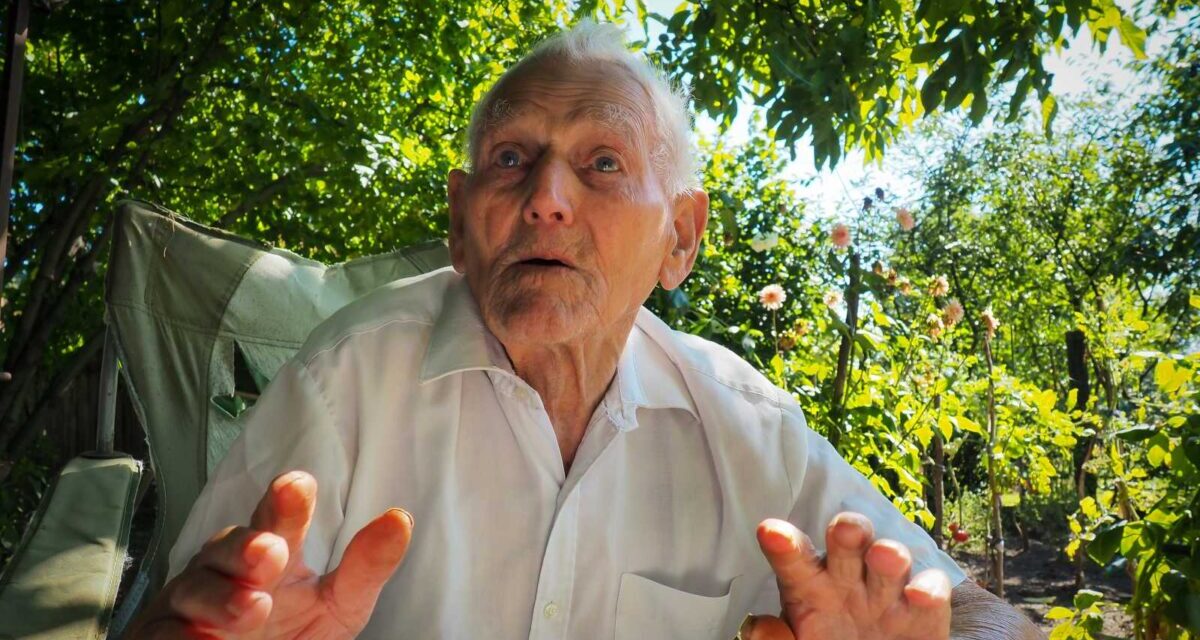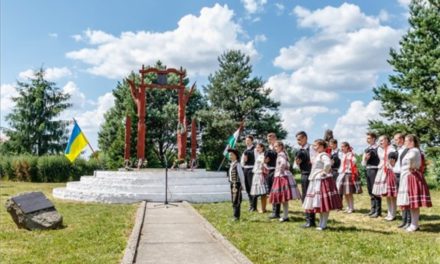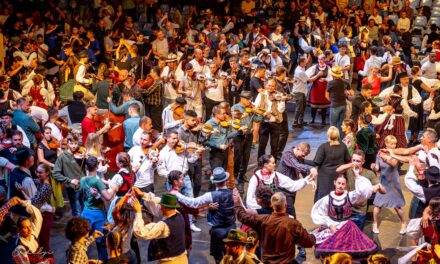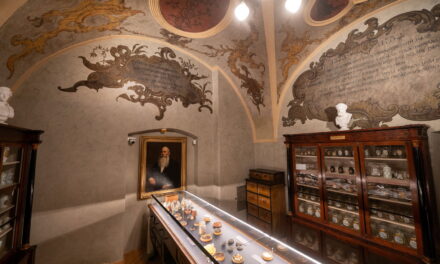The 99-year-old Mihály Vitéz Bartha, or as his acquaintances call him, Uncle Misi, is a regular participant in the commemorations in Úzvölgy, and what's more, he is a survivor of the military clash on August 26, 1944, during which only 70-80 of the approximately 300 soldiers assigned to guard the border remained. alive.
In his home in Sepsiszentgyörgy, Uncle Misi told about how he remembers the battles and how he managed to survive the battle. It also turned out that he was one of the few survivors who began to return to the site during communism and remember their fallen comrades, which the authorities of the time did not look favorably on, but tolerated the seclusion of the few survivors disguised as excursions.
Nowadays, we can hear and read a lot about Úzvölgy and the scandals of recent years, and this "modern battle noise" sometimes suppresses the peaceful and dignified commemoration that is regularly organized every year on August 26 in memory of the heroes who died there. For years and even decades, these main drives have had a special participant, Mihály Bartha Vitéz from Sepsiszentgyörgy, who first came to the Úz patak valley to the thousand-year-old Hungarian border for military service just before the fighting on August 26, 1944, and after a few years of absence, in 1960 Since the 1960s, he regularly returns to the former battlefield to remember his comrades who died there with his companions. It was no different this year either. He came with his grandson and great-grandsons to the service and procession at the military cemetery, and also laid a wreath in the cemetery plot of the Hungarian National Guard.
As his acquaintances call him, uncle Misi is 99 years old, but he still tries to be active, so much so that sometimes his family members have to "keep him in check" so that he takes better care of himself, otherwise he would still start working in the garden today. For example, during cherry picking, he already took the ladder to climb the tree to pick the fruit, luckily they managed to stop him in time, but in February of this year he cut the firewood himself with a circular saw. Thank God, he still enjoys a relatively good state of health, we could say that he is "fit" in the house, in the yard, and even jumps down or gets up from the low chair in such a way that even the person from Cluj, less than even half as many old reporters can envy him.
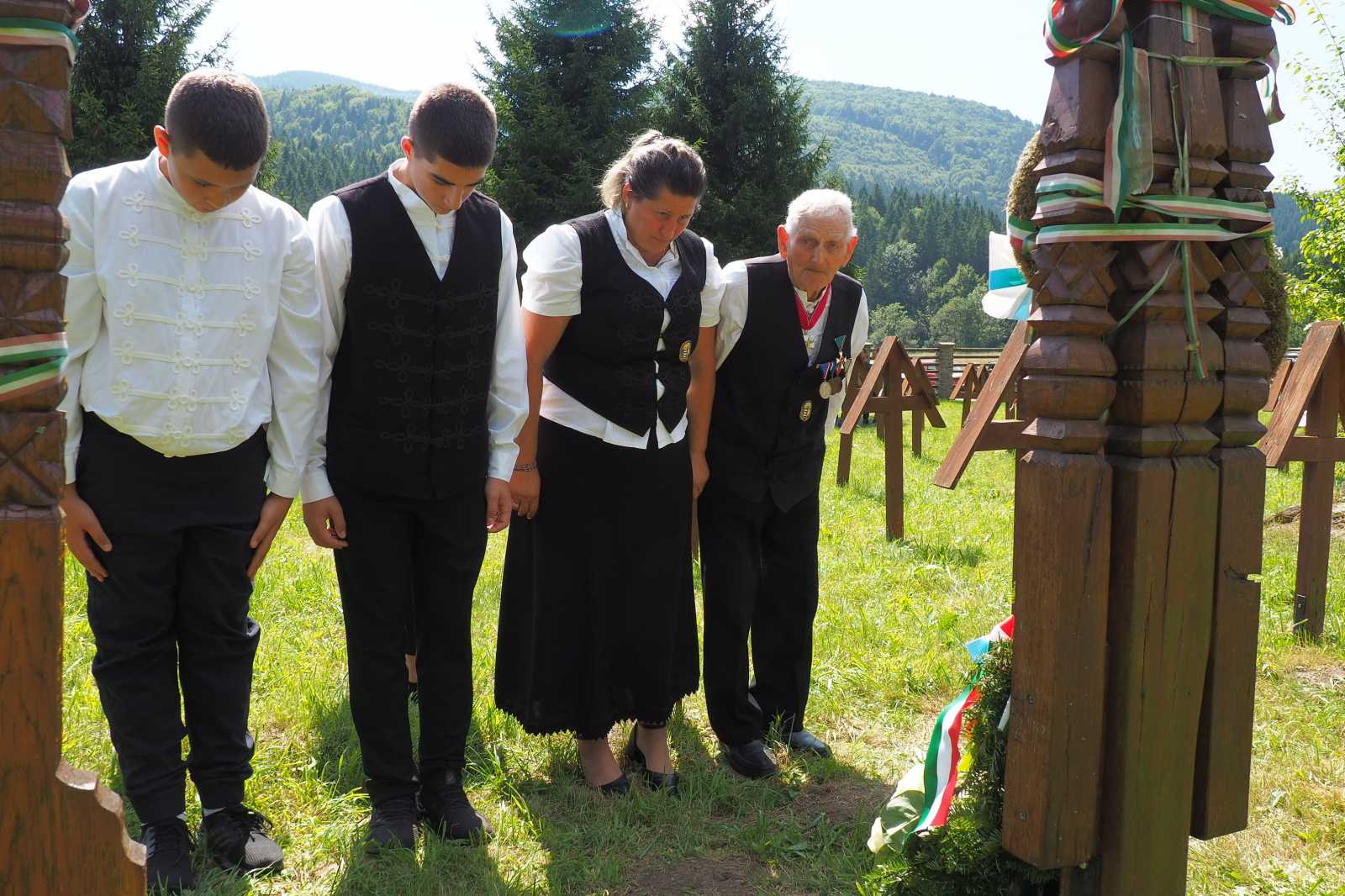
Uncle Misi at the most recent commemoration on August 26 with his grandson and great-grandchildren | Photo: Balázs Borsi/Maszol
Uncle Misi's granddaughter, Éva Mária Bartha, with whose help we arranged the interview, kindly welcomed us and took us to her grandfather's house in Sepsiszentgyörgy, in the back garden of which we took a seat under the huge walnut tree, where Uncle Misi also used to sit. We didn't have to question the old man much, he just started telling the story.
Mihály Bartha was conscripted into the Hungarian army in 1943, on October 4th he was taken as a soldier and his training began, then in the late spring of the following year he was sent to labor service, so he ended up digging trenches on the Ugra-tető, where he soon experienced what it was like when he and his comrades they themselves had to create a somewhat livable and protective living space. They were not given a tent or shelter, they created their own shelter:
"We made a roof out of pine branches, then we peeled off the bark of the pine tree, it came off easily, and we put it on top so that the rain wouldn't hit it. There were about twelve of us there. The passengers measured how much we had to dig, and we had to do it. That's how time passed. It was covered, the rain did not beat. It was summer, we worked there for two weeks. When we finished there, we could go home, they gave us two weeks' leave"
Uncle Misi began. After he had to return from his leave, he joined a team with the Székely border guards who had already been through the 2014 war.
"Time went by, August came, when the invitation came on the 1st that we had to apply. We left, and after they gathered us, we received the report that the direction of travel was the Úzvölgye. We didn't even know why it was Úzvölgye, but we had to go because the war was going on. We had not encountered any fights before, there was nothing here. We were divided into sections, there were archers and machine gunners, there were about a hundred of us. We headed nicely towards Úzvölgye, on foot. When we reached Aklos, there was a board factory in Úzvölgye, there was even a vicinal train that transported the workers and the material. Then they loaded us onto it and we went into the Úzvölgye with it, where we were accommodated in the barracks, which were built by the carpenters of Szentgyörgy back in '43. The border hunters were there"
Uncle Misi explained.
Since he learned the trade of carpentry, he set about making the interior furniture, designated which wood would be cut, and was able to tell him what kind of wood he needed from the nearby board factory. He got everything, and they even built an office there. "Everything was there, we just had to put it together," says uncle Misi, who also remembers that a musician much older than him joined him and helped him work.
"He cut up about ten beds, I put them together, and so on," he explains, so that if they get wounded, there should be a place to lay them.
When they finished their work in the camp, they were directed to the thousand-year border, three kilometers below the barracks, in the Úzvölgye. They already had an anti-tank gun there, so they guarded the country's border.
"There was the red bridge, which was once built by the Hungarians. The customs house was also there once. The Romanian border guards were on one side of the bridge, and we were on the other, the neutral zone was about half a kilometer away. They didn't come to us, we didn't go there either. Time passed, the Germans fled there, coming from Dormánfalva, sometimes by truck, sometimes on foot. That's when we found out that the Romanians had capitulated and sided with the Russians. We then became enemies with the Romanians, didn't we, then what could we do? We were there nicely, waiting to see what would happen. There were four Székely border guards, a corporal, a guard leader, and two who had no rank, and we were six young people under the cannon"
Uncle Misi said.
On August 26, "at a fine 10 o'clock the machine gun sounded" on the other side. "Then the corporal said: 'There's a problem, the Russians are coming!' And they really came, two tanks in front one after the other, we shot at three of them, but it didn't do anything. When he stopped at the barrier, he turned his barrel upside down and shot into the rock because he couldn't shoot us. The corporal said we had to escape from here because we would all be captured. The Russians came behind and there were a lot of them. Then we retreated to the forest, we had to leave the cannon there, there was nothing to do, we pulled up under the chapel, which they did in the war of '14. There was still a reserve cannon, there was a hill under the chapel, they exposed us there with the fact that there is no fairy tale, if the Russians come, we will attack them. But the kind of equipment we had... We had five cartridges in the carbine, and they had sixty-five, that's the kind of weaponry they had", says the 99-year-old Uncle Misi.
According to him, there was nothing they could do, because between the reinforcements coming from the rear and the enemy breaking in from the front, they were caught between two fires: "the front company also shot in the side, the Russians also shot, we had to escape from there, there was nothing we could do. We marched back nicely, there was nothing to do," he explains. He emphasized again that they didn't have the right equipment to face the enemy.
"You couldn't fight the Russians with a stick," says Uncle Misi.
By then, they were already walking back, the vicinal train wasn't working either. "I crawled through the wire barriers, into the forest, because it was not possible to pass on the road, I continued there" until he met his companions again in the camp. "The Hungarian artillerymen came, they held the line as long as they could. "We had to flee, there was no other option," Uncle Misi recalls the events in Úzvölgy.
The full interview can be read on Maslo!
Featured image: Balázs Borsi/Maszol

